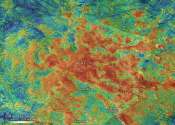NASA's BurstCube passes milestones on journey to launch
Scientists and engineers at NASA's Goddard Space Flight Center in Greenbelt, Maryland, have completed testing for BurstCube, a shoebox-sized spacecraft designed to study the universe's most powerful explosions. Members of ...









